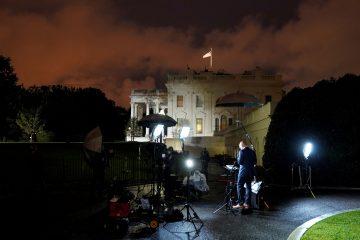Robin Wright in The New Yorker:
 The world might be a different place if American Presidents had not been felled by disease or hidden debilitating conditions. In February, 1945, just two months before his death, President Franklin Roosevelt—paralyzed by polio, weakened by congestive heart failure, and with his blood pressure hitting 260/150—travelled all the way to Yalta, a resort on the Crimean coast, to meet the Soviet Premier, Joseph Stalin, and the British Prime Minister, Winston Churchill. Stalin claimed that his doctors had ordered him not to travel far, but he had a chronic fear of flying and flew only once in his life. F.D.R. was by then a shell of a man, with skin hanging from his bones, raccoon rings around his eyes, and hands that often shook. But he agreed to the six-thousand-mile journey because the final phase of the Second World War and its aftermath were at stake. He wanted Stalin’s coöperation on a new international organization to foster peace, principles for governing countries liberated from Nazi rule in Europe, and military help in the Pacific theatre against Japan.
The world might be a different place if American Presidents had not been felled by disease or hidden debilitating conditions. In February, 1945, just two months before his death, President Franklin Roosevelt—paralyzed by polio, weakened by congestive heart failure, and with his blood pressure hitting 260/150—travelled all the way to Yalta, a resort on the Crimean coast, to meet the Soviet Premier, Joseph Stalin, and the British Prime Minister, Winston Churchill. Stalin claimed that his doctors had ordered him not to travel far, but he had a chronic fear of flying and flew only once in his life. F.D.R. was by then a shell of a man, with skin hanging from his bones, raccoon rings around his eyes, and hands that often shook. But he agreed to the six-thousand-mile journey because the final phase of the Second World War and its aftermath were at stake. He wanted Stalin’s coöperation on a new international organization to foster peace, principles for governing countries liberated from Nazi rule in Europe, and military help in the Pacific theatre against Japan.
In the Yalta Declaration, the three leaders set the stage—or so Roosevelt thought—for the postwar world. They agreed to Stalin’s request to divvy up Germany, Roosevelt’s dream of the United Nations, and to ceding chunks of Asia to the Soviet sphere. The most sensitive point was the fate of Eastern Europe after liberation from the Nazis. The three leaders pledged to allow those countries to form governments “representative of all democratic elements” and to facilitate imminent and free elections. Stalin specifically agreed to early elections in strategic Poland, which had been liberated by Soviet troops, and to allow non-Communist members to participate. Upon his return home, Roosevelt gave a speech to Congress, on March 1st, extolling the “unanimous” agreements with Moscow. He was so frail that he spoke sitting down, which he blamed on exhaustion from travel, because his health conditions were unknown to the public. “Never before have the major Allies been more closely united—not only in their war aims but also in their peace aims,” he boasted. More important than the agreement, he said, “We achieved a unity of thought and a way of getting along together.”
More here.
